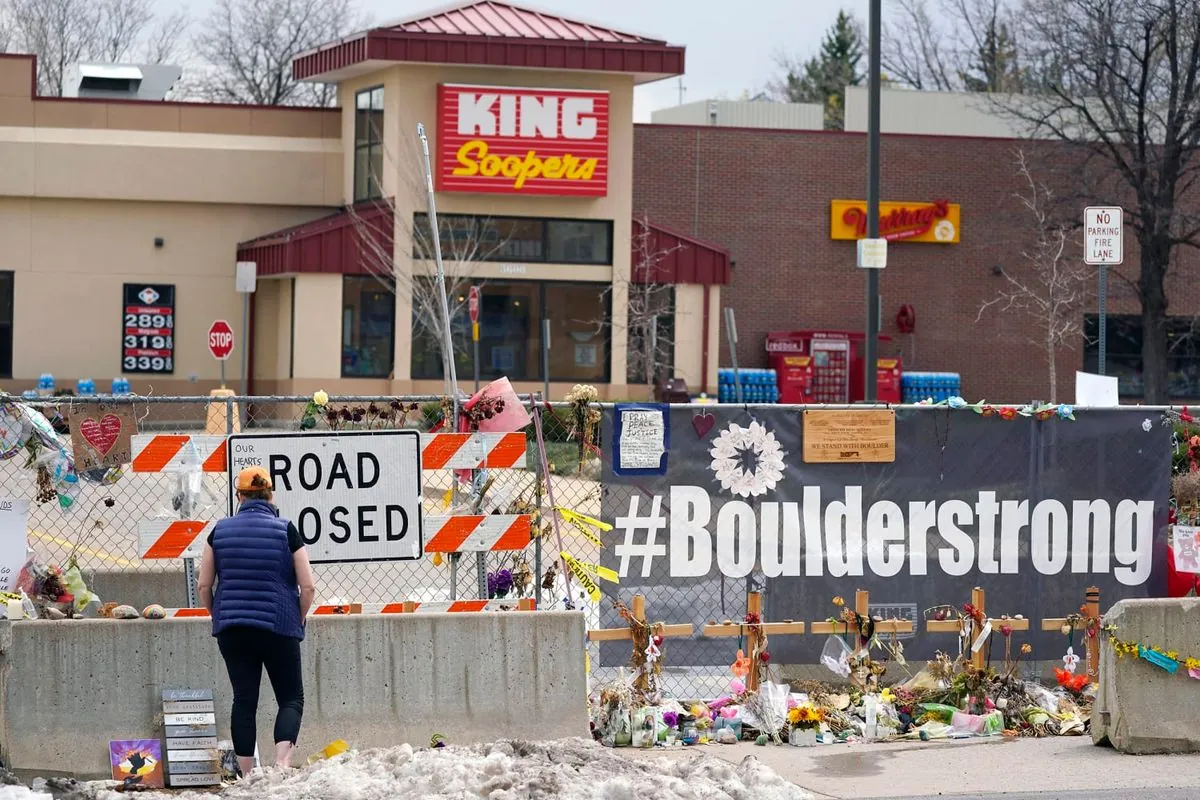In 2021, a tragic incident unfolded in Boulder, Colorado, when a gunman opened fire at a King Soopers supermarket, claiming ten lives. Now, over three years later, the trial of Ahmad Al Aliwi Alissa is set to commence, with jury selection beginning this week.
The case has drawn attention to the complexities of mental health in criminal proceedings. Alissa, diagnosed with schizophrenia, has pleaded not guilty by reason of insanity. This defense strategy argues that his mental illness prevented him from distinguishing right from wrong at the time of the shooting.
Prosecutors, however, contend that Alissa was aware of his actions. They point to his ability to work up to 60 hours weekly before the incident and his alleged research on assault rifles and ammunition types. The prosecution bears the burden of proving Alissa's sanity, a crucial aspect of the trial.
The motive behind the attack remains unclear, adding to the case's complexity. Investigators noted that Alissa had searched for information about the Christchurch mosque attacks in New Zealand, which occurred in March 2019 and led to significant changes in that country's gun laws.
The trial has faced numerous delays due to questions about Alissa's mental competency. After forcible medication improved his condition, Judge Ingrid Bakke ruled in October that he was fit to stand trial. This decision highlights the controversial practice of involuntary medication in legal proceedings, often used to restore competency in defendants with mental illness.
"I hope he goes to prison for the rest of his life, and then he'll serve the real penalty when he has to meet God and answer for killing 10 people."
Families of the victims, like Robert Olds, whose niece Rikki Olds was among those killed, are seeking closure through the trial. While hoping for answers, many have tempered their expectations of understanding the shooter's motivations fully.
The case has reignited discussions on gun control, mental health policies, and the use of the insanity defense in criminal trials. Alissa faces multiple charges, including ten counts of first-degree murder and possession of high-capacity ammunition magazines, which were banned in Colorado following previous mass shootings.
As the trial unfolds, it will likely involve expert testimony on Alissa's mental state, potentially including video interviews. The outcome could have significant implications for how the legal system handles cases involving mental illness and violent crimes.
For the Boulder community and the victims' families, the trial represents a crucial step in their ongoing journey of grief and healing. As Robert Olds poignantly stated, "There's no such thing as moving on. It's finding other ways to live without your loved one."
